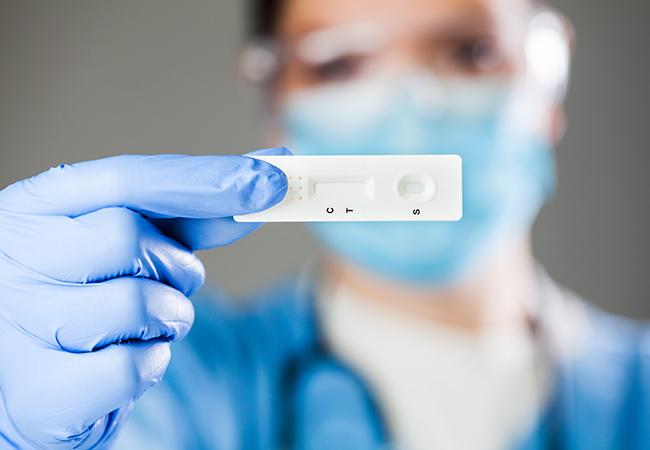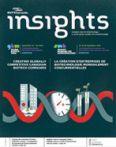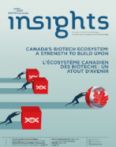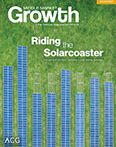COVID-19 Vancouver-Headquartered Venture Firm Seeks to Enter Testing Fray
By Derrick Penner
A Vancouver-headquartered venture firm is continuing its push to get in on COVID-19 testing as virus cases in Canada keep rising along with the pressure for more testing options.
Health Canada opened the door to rapid-testing options with the approval of three, 15-minute virus antigen tests made by different manufacturers, and has ordered millions of their units.
In Vancouver, meanwhile, Victory Square Health, a subsidiary of Victory Square Technologies, is pushing to find a role for its blood serology test options that look for COVID-19 antibodies that indicate a patient’s immune system has mounted a response to the virus.
The company has submitted a coronavirus antibody test to Health Canada under the name Safest COVID-19 IgG/IgM Rapid Test for evaluation, and is seeking an emergency-use authorization with the U.S. Food and Drug Administration (FDA).
Such antibody tests aren’t considered appropriate for diagnosis of COVID-19 by either Health Canada or the FDA, but Victory Square Health is arguing that its rapid test, which can offer up a result within 15 minutes, tells someone they’ve been exposed to the virus with a 96.6-per-cent accuracy.
“To me, (it’s) like making it easy for people to do tests, any kind of test, as long as it is within the Health Canada framework, the accuracy is acceptable so we’re not misleading people and makes it easy and affordable for people,” said Vahid Shababi, chief operating officer for parent company Victory Square Technologies.
Especially with case numbers rising, and people waiting in long lines for the COVID-19 PCR (polymerase chain reaction) tests or experiencing lengthy delays to receive results. The PCR test, which zeros in on the virus’s RNA, is considered the gold standard for testing.
Shababi argues the Safest COVID test could be an additional layer of information for patients, but not one that is relied on on its own, to help make some kind of test more accessible as rising case counts threaten tighter restrictions on business.
The Safest COVID-19 test, developed at the company’s labs in Brazil, works a bit like a pregnancy test, except uses a drop of blood to obtain a reading.
“I feel at this stage, it’s more about like providing as many tests as we can and make it easier for everyone to do a test,” he said.
However, the Safest COVID-19 test is in a long line with Health Canada, which has 100 different test methods under evaluation, including 53 serological tests similar to Victory Square Health’s offering, that were already in its queue. And Health Canada remains cautious about using results from serology testing on an individual basis.
“While serological assays will play an important role in research and surveillance, they are not currently recommended for diagnosis,” Health Canada spokesman Geoffroy Legault-Thivierge said in an email response to questions.
Legault-Thivierge said what Health Canada will authorize serological tests for will depend on the type of evidence manufacturers submit. For rapid virus testing, Canada has made orders for about 22 million antigen tests, the biggest of which could see Abbott Laboratories supply up to 20.5 million tests, with up to eight million delivered by the end of the year.
“Canada is taking a careful approach, and I think for the right reasons,” said Abdi Ghaffari, adjunct associate professor at Queen’s University in Kingston, Ont., who, this past summer, co-authored a study looking at a number of COVID-19 tests being developed for the market.

Health Canada is evaluating serological testing, “but they are not comfortable giving approval to anyone because (they’re) still trying to understand what we know about these antibodies and what they mean in clinical practice,” said Ali Ardakani, another co-author of the study and managing director of the advisory firm Novateur Ventures.
Serology tests are useful in determining exposure levels in a population generally, Ardakani said, “but they’re not really helpful on an individual basis yet.”
It takes one-to-three weeks after infection with COVID-19 for antibodies to show up in a patient’s blood, by which time “it’s just too late.”
And using antibody tests on an individual basis has other problems, said mathematician and epidemiologist Caroline Colijn. A result, even a positive result can give a patient a false sense of security about their exposure and perceived immunity.
“We don’t completely know that you can’t get reinfected,” said Colijn, a professor and Canada 150 research chair in math for evolution, infection and public health at Simon Fraser University.
Then the idea of giving people so-called COVID-19 immunity passports based on positive COVID-19 antibody test results could create inequities for people in access to jobs or certain services.
“I wouldn’t recommend going that way,” Colijn said.
However, Colijn said access to more diagnostic testing, such as the antigen test that Canada is purchasing, would be a “game-changer” in society’s ability to live with, and cope with, COVID-19.
“Having the test faster is really important,” Colijn said, especially in schools or workplaces where people work in close quarters.
Being able to test groups of people on a regular basis would help find asymptomatic cases and get people isolating before they spread the infection, Colijn said.
“If you could do very wide testing, and you could act on those tests, it could be a huge part of changing how well we’re able to live with (COVID-19),” Colijn said.



